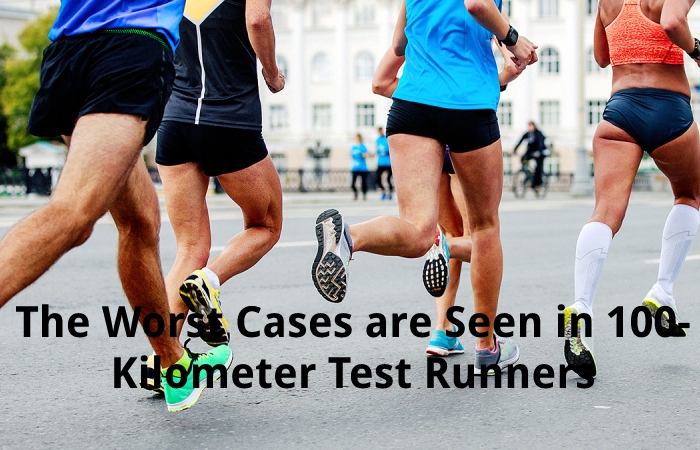Table of Contents
Marathon Heart Health
That marathon heart health is one of the most important organs of the human body – its operation is essential for life is evident. Therefore, it is evident that we all want the person responsible for our heartbeat to enjoy the best possible health. In this context, marathon runners are all lucky. Over the years, science has repeatedly shown that training for the Pheidippides distance can improve heart health.
Recreational Marathon Heart Health Training is Healthy no Matter
According to Zielinski, men generally improved heart size, shape, structure, and function after completing marathon training. These results indicate that a regular exercise is a potential tool for improving heart health.
Another of the cardiologists responsible for the study, Aaron Boggish, in statements to the prestigious Runner’s World, summarized the results a few years ago in a straightforward way: “In short, recreational marathon training is healthy regardless of the metric you look at We did not see anything that could link training to adverse health outcomes. ”
Boggish further notes that the observed cardiac remodelling is characterized by LV enlargement, RV enlargement, and left atrial enlargement, often beyond expected values. “These are identical to the changes observed in the elites. They all have adaptive explanations and not link in any way to pathology.”
Marathon Heart Health Training Reduces Vascular

More recent publications have also endorsed the benefits of marathon training on heart health.
A study by Bhuva et al. (2020) concluded that training to run the first marathon would rejuvenate vascular age by four years in just six months and thus significantly reduce the risk of cardiovascular disease and dementia.
To reach this conclusion, the investigators looked at 138 healthy athletes, with a mean age of 37, who participated in the London Marathon for the first time.
In the words of Dr Anish Bhuva, author of the study, “what we found in this study is that we can reverse the ageing processes that occur in the [blood] vessels, “he explained to NPR. “Many studies have shown that lifelong exercise reduces aortic stiffness.” This translates to a lower risk of stroke, heart failure, kidney problems, and dementia.
A Marathon Should not be Run in the following cases:
If you have any heart or respiratory problem which has not been studied or checked recently.
Under 15 or 16 years of age, following marathon training requires adaptations that are not advisable for the growing generation.
Recommendations for the Marathon Heart Health
The regularity: The key word is not to improvise. The marathon does not support short-term miracle training. An amateur who wants to run a marathon should start training about three months before, dedicating one to two hours about five times a week.
The planning: The week before the marathon, intense efforts should be made. It is necessary to rest completely 24 hours before and avoid hot baths the hours before the race.
The last stretches: They prepare the race for the tremendous effort that a marathon entails.
Warm-up: Its objective is to obtain greater mobility and flexibility in the joints, but it also helps to increase the heart rate and blood flow progressively. The increase in heart rate improves the oxygenation of the muscles and a progressive increase in the amount of blood reaching them, reducing muscle tension. The excellent sense During the race, it is essential not to go to extremes and to know how to listen to the body. You can’t push your body to the limit.
The healing: It is essential to stretch again and more thoroughly. A cold shower recommends facilitating a good recovery after the effort.
Preparation is the Key to Being able to Run a Marathon Heart Health Way
Preparation before running a marathon is essential to make this sport a heart-healthy exercise. Running is good for health and the heart but in the case of moments of great intensity, such as a marathon. The Spanish Heart Foundation (FEC) remedies us that taking a series of precautions is necessary since poor preparation can have irreversible effects on the heart and runners’ health.
Thus, before running a marathon, it is necessary to train all the muscles of our body, including the heart. This is in charge of getting blood to the rest of the forces, thus allowing them all to function correctly. To train the heart, it is necessary to carry out specific cardiovascular training, just as it happens with the rest of the muscles of our body.
According to the FEC, aerobic exercise is the best way to strengthen your heart. In addition, these types of activities reduce blood pressure and help prevent cardiovascular disease. Despite this, it is necessary to moderate the intensity and volume of aerobic exercises and be aware of our body’s limits since, depending on this, sports practice can have beneficial effects on the heart or, on the contrary, pose a cardiovascular risk.
The Worst Cases are Seen in 100- Kilometer Test Runners

However, within this type of athletes who ultra-pass suitable cardiac biomarkers, Cremades believes that two divergent groups must be made. First, the 26-mile runners “show considerable increases in all cardiac biomarkers after the test, and up to 24 hours after this strenuous and long-lasting physical activity, but lower than what we found in runners who ran tests. 100km and 308km”.
All marathoners who participated in the study had no previous symptoms of Acute Myocardial Infarction and completed. A least one marathon within a year, so “the possible myocardial damage would be reversible.” Therefore, Cremades wants to make it clear, “in healthy people. It does not seem dangerous to run a marathon since the basal values recover. In any case, it highly recommends carrying out regular medical check-ups in stressful situations to rule out cardiac anomalies”. And he issues a warning: “If there is even the slightest heart health problem. It running a marathon will lethally aggravate it.”
Triathletes and Long-Distances Runners Shoot Up CPK Values
The same studies carried out on triathletes, marathoners, and long-distance runners “shoot these numbers much higher”, as the professor from the University of Zaragoza describes us. In the case of triathletes, “we have observed values that are 1,836 IU/L.” In the case of long-distance runners, figures are still much higher. Daniel Cremades tells us that “up to 43,700 IU/L have been described after a 100km test”. Considering these statistics, “what seems clear, according to the different researchers. It is that the type of effort, the duration and especially the physical preparation are closely related to the muscle damage caused”. Cremades is surprised that there is no more control and preparation. It tests this type in the face of such evidence.
Conclusion
That is why we have contacted university professor Daniel Cremades. If who has coordinated several studies in the Department of Physiatry and Nursing of the Faculty of Health and Sports Sciences. In the University of Zaragoza. Several recent studies have warned that “exercise of very high intensity and very long. A duration involves possible heart damage”, admits first Cremades.

